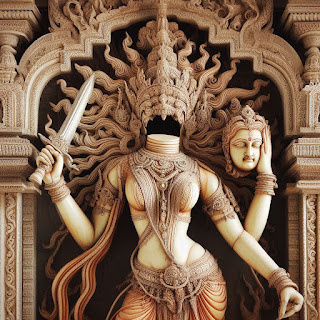The Cathars and the Ritual of Consolamentum: A Journey of Spiritual Transcendence
Introduction:
In the rich tapestry of religious history, the Cathars stand as a remarkable example of a unique Christian sect that existed during the medieval era. Known for their emphasis on spirituality and asceticism, the Cathars developed their own rituals and practices to attain a higher level of divine connection. One of their most significant ceremonies was the Consolamentum, a profound ritual of initiation and spiritual liberation. In this blog post, we will delve into the ritual of Consolamentum, exploring its origins, significance, and the transformative power it held for the Cathars.
Understanding the Cathars: The Cathars were a Christian movement that emerged in the 11th century in Western Europe, primarily in what is now known as the Languedoc region of southern France. They believed in a dualistic cosmology, postulating the existence of two eternal principles: a benevolent God of the spiritual realm and an evil God of the material world. They viewed the material world as corrupt and believed that the path to salvation lay in transcending its influence.
The Consolamentum: At the heart of Cathar spirituality was the ritual of Consolamentum, a sacrament of spiritual liberation and initiation into the Perfecti or Parfaits, the highest rank within the Cathar community. The Consolamentum was considered the only true baptism and was believed to wash away all past sins, allowing the recipient to attain a state of purity and union with the divine.
The Ritual Process: The Consolamentum was conducted by a Perfectus, a spiritually advanced Cathar who had attained a profound level of understanding and purity. The ceremony itself involved the laying on of hands, prayers, and the recitation of sacred texts. The recipient would be guided through a process of renouncing their previous life and dedicating themselves to the Cathar path of asceticism, poverty, and celibacy.
The Significance: The Consolamentum was seen as the gateway to salvation for the Cathars. Through this ritual, they believed they could attain a direct connection to the spiritual realm, free from the constraints of the material world. By renouncing worldly possessions and embracing a life of simplicity, the Cathars sought to attain spiritual perfection and become vessels of divine light in a world they saw as tainted by darkness.
Spiritual Consequences: Upon receiving the Consolamentum, the individual would be considered spiritually reborn and was believed to have achieved the status of a Perfectus. They were regarded as living examples of the divine presence on Earth and were expected to guide others towards spiritual awakening. The Cathars believed that the Perfecti possessed the power to liberate souls and were instrumental in the process of salvation.
Legacy and Persecution: The Cathars' unique beliefs and practices set them apart from the established Catholic Church, leading to their persecution as heretics. The Consolamentum was deemed a threat to the authority of the Catholic clergy, as it bypassed traditional sacraments and undermined the hierarchical structure of the Church. The Cathars faced relentless persecution, culminating in the brutal Albigensian Crusade, which sought to eradicate their influence.
Conclusion: The ritual of Consolamentum stands as a testament to the Cathars' unwavering commitment to their spiritual beliefs. Through this sacrament, they sought to attain a profound connection with the divine and navigate a path towards salvation. While the Cathar movement itself did not survive the trials of history, the Consolamentum remains a poignant reminder of the human quest for spiritual transcendence and the enduring power of individual spiritual experiences.




Comments
Post a Comment